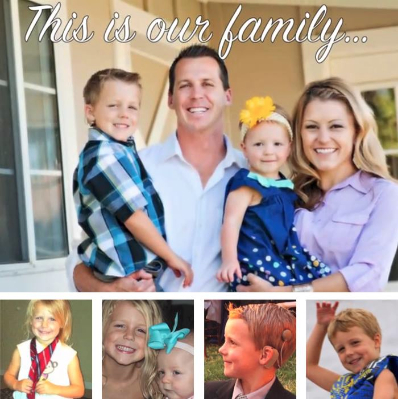 Many of us in the progressive arena advocate passionately for LGBT civil rights. And right we should; it is literally the civil rights struggle of our time. Interestingly and unfortunately, LGBT rights have become mainly synonymous with civil rights for gay and lesbian men and women. Bisexuals like myself often aren’t taken seriously by straight or queer people and we often aren’t seen having much to worry about despite the fact that we can still be fired from our jobs in states like Michigan should our sexual orientation be discovered. I once had a national LGBT activist chide me for saying “our struggle” because he knew I was married to a woman. I had to remind him about the “B” in LGBT.
Many of us in the progressive arena advocate passionately for LGBT civil rights. And right we should; it is literally the civil rights struggle of our time. Interestingly and unfortunately, LGBT rights have become mainly synonymous with civil rights for gay and lesbian men and women. Bisexuals like myself often aren’t taken seriously by straight or queer people and we often aren’t seen having much to worry about despite the fact that we can still be fired from our jobs in states like Michigan should our sexual orientation be discovered. I once had a national LGBT activist chide me for saying “our struggle” because he knew I was married to a woman. I had to remind him about the “B” in LGBT.
But bisexual people DO have it easy compared with transgender or “trans” people. They face a constant barrage of discrimination, rejection, and physical violence. Not only from the straight community, but from the so-called LGBT community, as well. As an example, here in Michigan, transgender women are banned from the Michigan Womyn’s Music Festival, a several decades old music festival that draws nearly 3,000 attendees. Only women are allowed to attend “Michfest” and only women with the proper genitalia (“womyn born womyn”). The decision last year to prohibit trans women from attending caused performers like the Indigo Girls and Lea DeLaria from “Orange is the New Black” to cancel their performances. DeLaria issued this spectacular statement:
After over 30 years of gay activisim and as an out, proud member of the LGBTQ Community, I do not wish to be a party to infighting. We queers need to find a way to stop this fighting and work together towards our common goal.Both sides of the Michigan Women’s Music Festival dispute refuse to listen to each other. Due to their unyielding stance, I am withdrawing from the festival.
I truly look forward to the time when all LGBTQ stand as one. Perhaps then we can collectively laugh at how f—-d up is it when I’M the voice of reason.
I don’t claim to be an expert on the issues facing transgender people. I was recently corrected when I inappropriately used the term “transgendered” as if being transgender is something that happened to someone. It’s not. The American Psychological Association describes transgender in this way:
Transgender is an umbrella term for persons whose gender identity, gender expression or behavior does not conform to that typically associated with the sex to which they were assigned at birth. Gender identity refers to a person’s internal sense of being male, female or something else; gender expression refers to the way a person communicates gender identity to others through behavior, clothing, hairstyles, voice or body characteristics. “Trans” is sometimes used as shorthand for “transgender.” While transgender is generally a good term to use, not everyone whose appearance or behavior is gender-nonconforming will identify as a transgender person. The ways that transgender people are talked about in popular culture, academia and science are constantly changing, particularly as individuals’ awareness, knowledge and openness about transgender people and their experiences grow.
What I do know is that trans people face lives often filled with unparalleled discrimination, frequent incidents of violence or the threat of violence directed against them, deep depression, and an attempted suicide rate (41%) ten times higher than the national average. They experience discrimination on a daily basis simply because they are trying to live their lives in the way their biology screams out to them. That’s something most of us will never experience in even a minute way. It gives me hope to see my transgender friends being out and active and effective at what they do but I know that their stories are tragically unique when so many trans people live in such peril from a wide array of sources.
Last night a friend of mine posted this video on Facebook. It’s a story of a family who came to terms with their daughter’s transgender identity when she was only five or six. They learned as much as they could, bit the bullet, and allowed her to transition. Their son, Ryland Whittington, is now a happy, well-adjusted kid. It’s a rare success story but one that everyone should see. We, as progressives, need to ensure that we remain vigilant to the situations of everyone around us, not just those who conform to certain pre-established norms that even we project onto those around us.
Please take 7 minutes and watch the Whittington’s story. Thanks.



